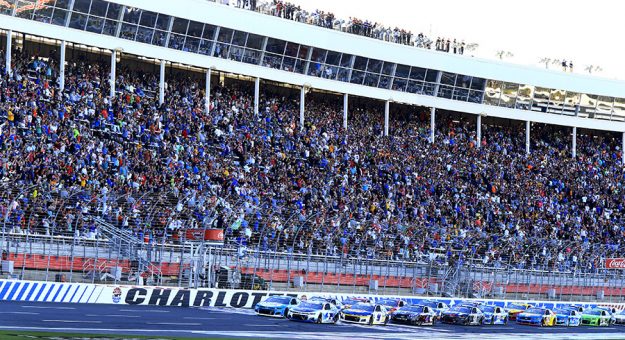WILMETTE, Ill. — Race tracks and motorsports businesses continue to contribute to local economies, even during the challenges of the last year.
This month, we will examine how municipalities and governments support the efforts of their local racing venues.
On the state level, racing is a key part of the fuel that drives the North Carolina business engine. It is the central hub for the stock car industry.
The proposed North Carolina state budget for 2021-’22 includes $51 million that would be directed to the motorsports industry. A portion of these funds would part of the American Rescue Plan that states received from the federal government.
This includes $45 million for infrastructure projects that would benefit three race tracks — Charlotte Motor Speedway, North Wilkesboro Speedway and Rockingham Speedway.
The largest amount, $20 million, would be for water, sewer and infrastructure upgrades for the area around North Wilkesboro Speedway. Wilkes Country would receive the funds and coordinate with local governments for work related to the track, which has been closed since 2011 and hasn’t hosted a NASCAR race since 1996.
The cities of Concord and Rockingham would get $10 million each to improve areas near their respective racing venues.
An additional $5 million is funding for grants that local municipalities could use for increasing opportunities for racing events. These venues would have to be sanctioned by NASCAR, NHRA or IHRA. There are 15 tracks that meet this criteria.
The remaining $1 million would be for smaller tracks and supporting their operations.
Sports-betting legislation in North Carolina has also been proposed that would issue licenses for operators to offer live in-person or online betting at sports books at sports stadiums, arenas and race tracks.
This follows the recent trend of states legalizing sports betting since the Supreme Court struck down the federal ban in 2018. Budget shortfalls are causing states to reconsider sports betting since it generates meaningful tax revenue.
At the federal level, legislation has been introduced to protect the right to convert street vehicles into dedicated race cars and the motorsports parts industry’s ability to sell products that enable racers to compete.
The RPM Act of 2021 clarifies that it is legal to make emissions-related changes to a street vehicle for the purpose of converting it into a race car used in competition. It also confirms that it is legal to produce, market and install racing equipment.
The goal is to clarify the EPA’s understanding that the Clean Air Act does not allow a motor vehicle for street use to be converted to a race car to be used on the track and not on public roads. The terms “competition only” and “track use” are subject to differing interpretations.
For many years, this was not a problem but starting around 2015, the EPA adopted the stance that vehicles must remain emission compliant. Enforcement is ongoing against manufacturers, sellers and installers of high-performance race car parts.
There has been strong support across the motorsports community asking Congress to pass this legislation. More than one million letters have been sent to representatives in Washington.
Motorsports competition involves thousands of participants and owners, both on the amateur and professional levels. Retail sales of racing products total billions of dollars annually. Tracks are located in every part of the country.
These legislative efforts on the both the state and federal levels support the business of motorsports and its favorable impact from an economic perspective.
